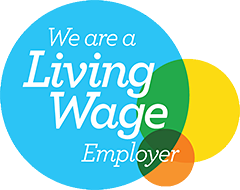Council Tax FAQ's
Frequently Asked Questions - Council Tax
The Council Tax Banding List is a list of all the dwellings in the area, giving their banding for Council Tax purposes. It sets out for each property:
- Its address
- Its banding
- An indication if the banding results from an appeal decision
- The effective date of any change in the banding
- A marker which shows if the dwelling is exempt
The banding reflects the figure for which the property might have been expected to sell in the open market on 1st April 1991, given the conditions set out in the legislation which established the Council Tax.
To decide which band is applied to each house in his area, the Assessor looked at the prices obtained by every house sold in the open market during 1990, 1991 and 1992. The Assessor also looked at later prices, but only as an indication of the way house prices were changing over time. All available information was used to place bands on all of the houses in the Lothian area.
The band will be shown on the Valuation List. The List a public document which is available for inspection, free of charge, at some Council Offices and libraries. The Valuation List is available to view online, via the Scottish Assessors Portal Website.
If the house is not shown on the Valuation List you should contact the Assessor immediately.
You can do this via the form on our New Housing page. Arrangements will be made for the property to be inspected and added to the Valuation List as soon as possible.
When originally banded, all interested persons had a right to lodge a proposal to change/appeal against the banding. Thereafter there are only limited circumstances in which a proposal/appeal may be made.
Under current legislation alterations and extensions will not affect the valuation band until the property is sold. However, once sold the banding may be reviewed and the new taxpayer may have to pay a higher amount of Council Tax.
Not necessarily. The band applied to any house is based on an examination of the prices of all similar houses sold at or about 1st April 1991 and some may be higher for others. The Assessor will have taken a view of what might reasonably be expected for the house, which may well be more than the figures for which some of the houses in the group actually sold.
An appeal against the banding of your house is described in the legislation as a ‘proposal’. The circumstances in which you can lodge a proposal are limited by the legislation.
If you became the taxpayer within the last six months, or the Assessor has changed the banding in that time, you may make a proposal to have the banding altered. If you have been in the house longer than six months, and there has been no change in the band since it was fixed in 1993, then you can only make a proposal if there has been a physical change in your house or to its physical surroundings which you consider has reduced its value.
The Director of Finance of your local Council determines the actual amount of Council Tax payable in respect of each property. You should contact that department in order to ascertain that all aspects of discount and relief have been correctly applied.
You can contact your Director of Finance using the details below –
| City of Edinburgh Council | 0131 608 1111 | incomeandbenefits@edinburgh.gov.uk |
| West Lothian Council | 01506 282 020 | counciltax@westlothian.gov.uk |
| East Lothian Council | 01875 824 314 | www.eastlothian.gov.uk |
| Midlothian Council | 0131 271 3201 | revenues.enquiries@midlothian.gov.uk |
An appeal against the banding of your house is described in the legislation as a ‘proposal’. The circumstances in which you can lodge a proposal are limited by the legislation.
If you became the taxpayer within the last six months, or the Assessor has changed the banding in that time, you may make a proposal to have the banding altered. If you have been in the house longer than six months, and there has been no change in the band since it was fixed in 1993, then you can only make a proposal if there has been a physical change in your house or to its physical surroundings which you consider has reduced its value.
A Proposal (appeal) must contain certain information and the simplest way to lodge one is via the Scottish Assessors Association website or it can be submitted in writing or by email to the Assessor – details are on our Contact Page.
More information regarding proposals (appeals) can be found at the Scottish Assessors’ Association website (https://www.saa.gov.uk/council-tax/council-tax-proposals/ ).
Appeals against a Valuation Appeal Committee decision can be made to the Court of Session, by either the Assessor or the appellant, but only on a point of law. Appeals to the Court of Session will generally require legal expertise and expenses and will also involve a lodgement fee by both the appellant and respondent. See Legal Extract below ;
Local Government Finance Act 1992, Chapter 14, Part II
82(4) Any party to an appeal under this Part may appeal against a decision of the valuation appeal committee on a point of law to the Court of Session.
Rules of the Court of Session (amended as at July 2005), Chapter 41, Part III
Form of appeal
41.19.-(1) An appeal to which this Part applies shall be made in Form 41.19 presented to the Inner House.
(2) An appeal referred to in paragraph (1) shall-
(a) specify the relevant provision of the enactment under the authority of which the appeal is brought;
(b) specify the decision complained of, the date on which the decision was made and on which it was intimated to the appellant, and any other necessary particulars;
(c) where the appeal is against only a part of such a decision, specify or distinguish that part;
(d) set out the decision appealed against or refer to the decision (a copy of which shall be appended to the appeal);
(e) state, in brief numbered propositions, the grounds of appeal; and
(f) set out in a schedule the names and addresses of the respondents in the appeal and the name and address, so far as known to the appellant, of any other person who may have an interest in the appeal.
Lodging of appeal in court
41.20.-(1) Subject to paragraphs (2) and (3), the appeal shall be lodged in the General Department-
(a) within the period prescribed by the enactment under which it is brought; or
(b) where no such period is prescribed, within 42 days after-
(i) the date on which the decision appealed against was intimated to the appellant.




